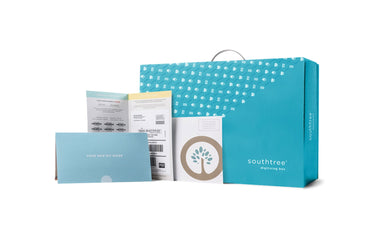“Hey, have you seen my car keys?”
If you’re like the rest of humanity, you’ve probably asked that question more times than you’d like to admit. The truth is that we humans can be pretty forgetful at times. Whether you misplace things often, or you can never seem to remember anyone’s birthday, you’re in good company. We all struggle with memory recall at times. But why is that? To understand more, you’ll need a crash course in the brain’s memory retrieval system.
Your Brain – The Golden Retriever
The human brain is no doubt complex. Different lobes and glands interact to perform basic and intricate activities that keep us all alive. One of these vitally important activities is memory recall. The human brain stores memories in many different places, each location aiding in the storage and retrieval of different types of memory. There are three major types of memory that are responsible for recalling various types of information – explicit, implicit, and working memory.
Explicit memory
Explicit memories, memories of events in your life and factual information, are stored in the neocortex, the amygdala and the hippocampus of the brain. Explicit memories can be episodic, autobiographical memories, such as the memory of your 16th birthday, or they can be semantic, factual memories, like remembering the Pythagorean theorem. This type of memory is consciously recorded – in order for the brain to memorize explicit information, you have to work to commit it to memory.
Implicit memory
Implicit memories, motor memories of repeated actions our bodies perform, are stored in the basal ganglia and the cerebellum. These types of memories are unconsciously recorded and unconsciously recalled. Procedural memory, like the ability to brush your teeth or kick a soccer ball, is implicit because it can be done without being consciously aware of how you learned to complete the action.
Working memory
Short term working memories, memories needed for immediate information, such as the location of car keys, are stored in the prefrontal cortex (PFC). Interesting, this area of the brain is the most recent addition to the mammalian brain. The PFC is split in the types of short term memory it stores – the left side stores more verbal working memory, such as an address or date someone tells you, and the right side stores spatial memories like the locations of objects.
In order to seriously improve your memory, you’ve got to understand that human memory retention is complex. It involves many different parts of the brain, and many different types of memories! Understanding these facets of memory will help you figure out the best way to improve your memory overall and become less forgetful. Here are five different suggestions on how to get started!
Memory Bootcamp
Do some brain exercises
It can be so easy to go through an entire day without really engaging our memories. Our routines keep us in auto-pilot, and we often won’t experience new or challenging things unless we put ourselves out there and just go for it. Our brains crave stimulation, and learning new things can tremendously improve memory! Learning to play the piano, practicing math in your head, or taking the time to learn a foreign language are all great activities to try that will improve your ability to remember things.
Prioritize self-care
Stress is the enemy of good brain function. Anxiety and worrying can lead to chronic forgetfulness along with many other psychological and physical ailments. One great way to improve your memory is to keep your stress levels lowered! Getting into a new hobby, practicing yoga and deep breathing, and other forms of stress-relief can allow your brain to relax and restore itself to proper function.
Catch up on sleep
One of the simplest solutions to improving your memory is to get some much needed shut-eye. During sleep, the brain has time to reset and to begin storing information into the neocortex for long term memory. The best and easiest way to ensure you’ll remember things is to get at least 7.5 to 9 hours of sleep every night. Sweet dreams!
Work up a sweat
In order to keep your brain in tip-top shape, you’ll need to keep your body in shape as well! The brain relies on oxygen flow and healthy nutrients to keep up proper functioning. Physical exercise, particularly exercise that gets your heart pumping, is great for giving your brain a boost. If you feel foggy and that extra cup of coffee isn’t working, try taking a quick exercise break and see if it helps clear your head!
Make time for friends
An active social life is extremely important for human health and happiness. Our brains love social interaction and crave it when it is lacking in our lives. One of the best ways to improve your brain function and memory recall is to make more time for those you love. Studies have shown that people with very active social lives are less likely to suffer from memory loss. So why not make plans to go out this weekend with your pals?
Your brain wants to be challenged and energized. Try out these five things to improve your memory and they may just help you find your car keys a little faster! You’ll likely be feeling lighter and happier as well.













